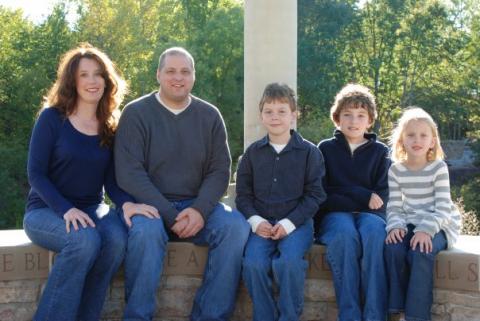Blog and News
Blog & News
Historias de la Familia
Early Diagnosis Makes All the Difference
-

Our family story begins with the birth of our oldest son Jack in 1997. He was born after an uneventful pregnancy and delivery. We were overjoyed to bring home our newborn son. He was a very happy and carefree child. We thought everything was going as planned, until one day when he was nine months old. I had walked into his room after he had woken from a nap and began talking to him. He never turned around to look at me. Thinking something felt “not quite right” with that moment I took him into the pediatrician for a checkup. After visits with the doctor and then an audiologist and ENT (Ear, Nose and Throat Doctor), Jack was diagnosed with a profound hearing loss. This came as a shock to us since we, like 90 - 95% of all diagnosed families, did not have a family history of hearing loss. We spent those first years playing catch-up, because he was not diagnosed at birth Jack had a language delay. Essentially, he had spent the first months of his life not being exposed to any language. We wished we had those ten months back, to do over, so that he would not have had to work so hard to overcome the obstacles stacked against him. Even though we felt so far behind already, the professionals kept telling us how fortunate we were to discover this when we did because the average age of diagnosis at the time was around 2 ½ years of age. Through extensive therapy and time spent providing him a language-enriched environment, he was able to catch up and enter kindergarten with language equivalent to his peers. We considered ourselves one of the lucky ones because many of those diagnosed at a later age were never able to bridge that gap.
Fast forward five and a half years and the birth of our hearing son Owen in 2001, we were blessed with the arrival of our daughter Tressa in 2003. Tressa was also born with a profound hearing loss. She however was diagnosed at 2 weeks of age through the Newborn Hearing Screening that was now taking place in our state. This form of screening was now becoming common practice at hospitals throughout the United States after the implementation of Early Hearing Detection and Implementation (EHDI) programs around the country. Her journey has been a much easier one because of her earlier diagnosis. She never suffered a language delay, didn’t need the amount of therapy and ended it much sooner in her life. This early diagnosis and intervention is the single thing that had made all the difference in her language development.
Our lives today do not revolve around deafness. It certainly is part of our children’s lives and always will be, but it is not their defining trait. They are growing into what we always hoped they would be well-adjusted, successful individuals!
1 Comment
Comment on This Post